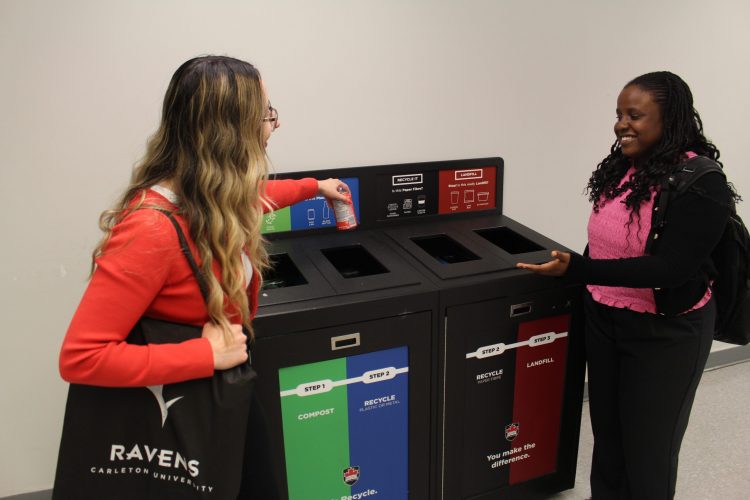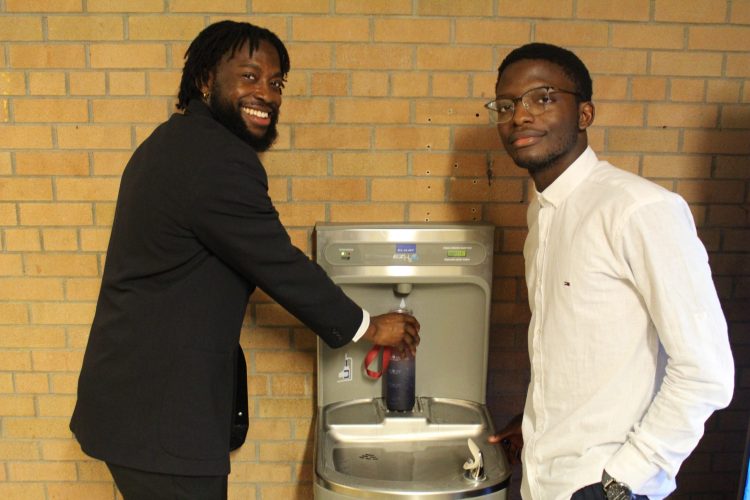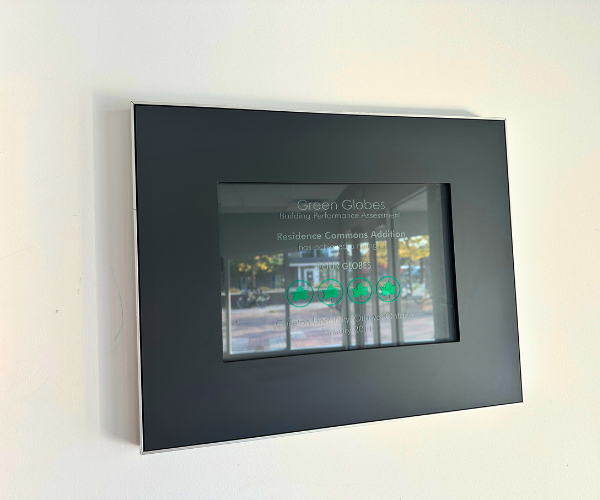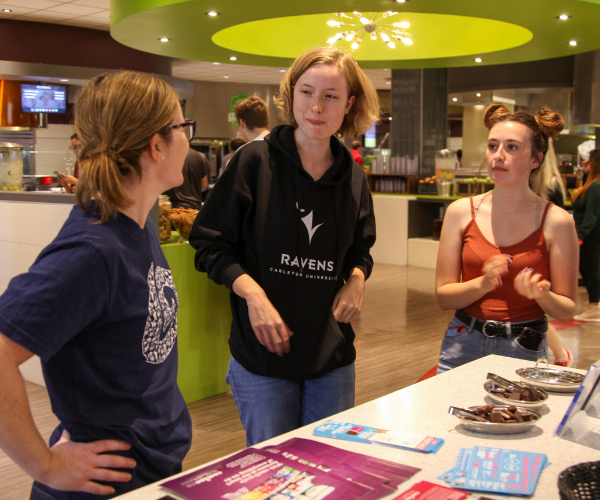Housing and Residence Life Services is committed to sustainability for the health of today and for future generations of Ravens in residence.

Waste Management
Each residence floor of all buildings has a 4-section bin for garbage, paper, plastic (recycling waste) and compost collection.
Frontenac, Prescott and Leeds Houses all have one compost bin per suite. If you’re in another building and passionate about composting, you may borrow a composting bin! Request a compost bin through the Housing Portal.
Special waste depots are in Raven’s Roost (first floor Stormont House) and Housing and Residence Life Services office (261 Stormont House). Drop off your batteries, electronic waste and printer toner cartridges.

Water and High Efficiency Fixtures
All residence houses are equipped with high-efficiency water fixtures. As a result, water use dropped 65 percent after introducing these fixtures.
Carleton University has committed to phasing out the sale of bottled water on campus over the next several years.
Water bottle filling stations are in high traffic areas in residence, in addition to the more than 150 water fountains across campus.

Green Globe Certifications
The Green Globes building assessment program is being used to design and assess all new buildings and major renovations on campus, ensuring sustainable buildings are a part of the campus community.
In residence, our Green Globe Buildings are:
- Teraanga Commons (4 Globes)
- Russell-Grenville House (4 Globes)
- Frontenac House (3 Globes)
- Lennox and Addington House (3 Globes)

Teraanga Commons Dining Hall
Teraanga Commons Dining Hall is a zero-waste facility, with over 90 per cent of materials diverted from the landfill! Reusable cutlery, dishes and glassware help reduce the amount of single-use disposable waste. Trayless dining helps reduce food waste by 25-30 per cent per person!
Napkins, made of 100 per cent recycled content, are the only single use item in the dining hall, which are composted with organic waste. Used fryer oil is recycled into biodiesel fuel, which is then used to power landscape vehicles.
Instead of composting usable food that is not incorporated into menu offerings, Carleton Dining utilizes Food Rescue, an online platform developed by Second Harvest, to connect us with local social service organizations that help address food insecurity through the provision of meals. Learn more about waste reduction in the Teraanga Commons Dining Hall.
